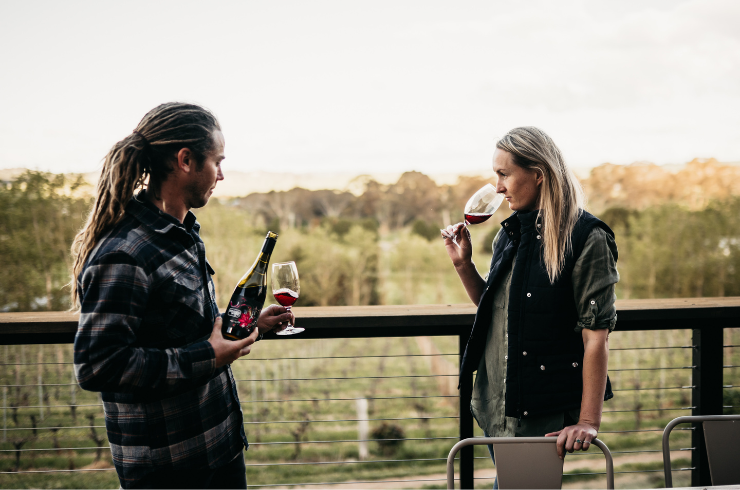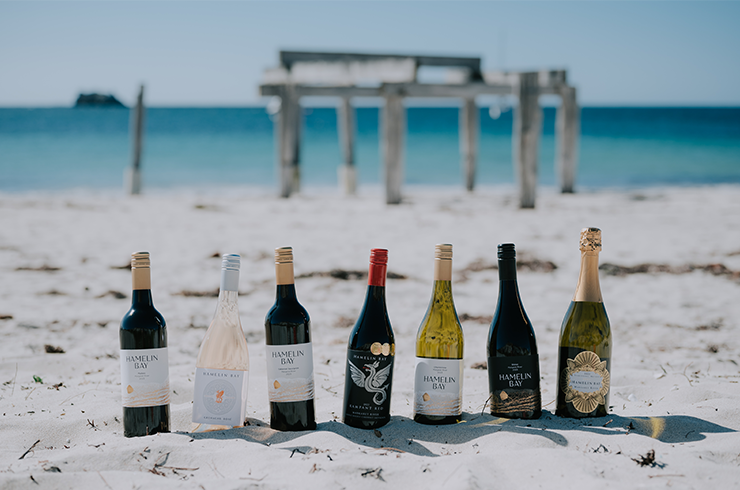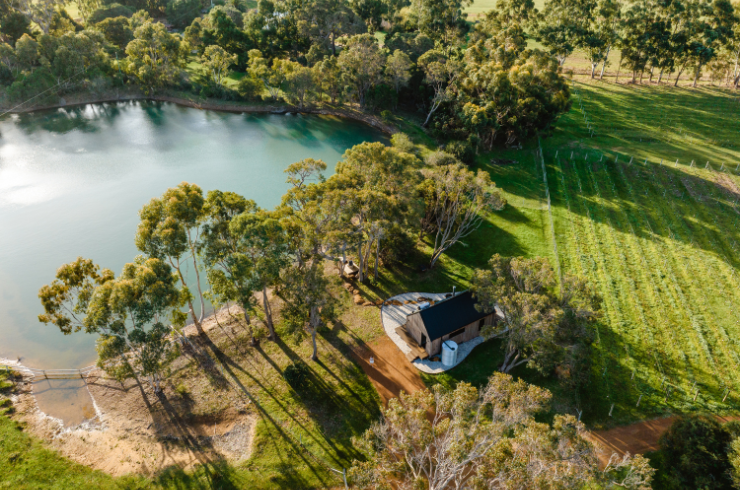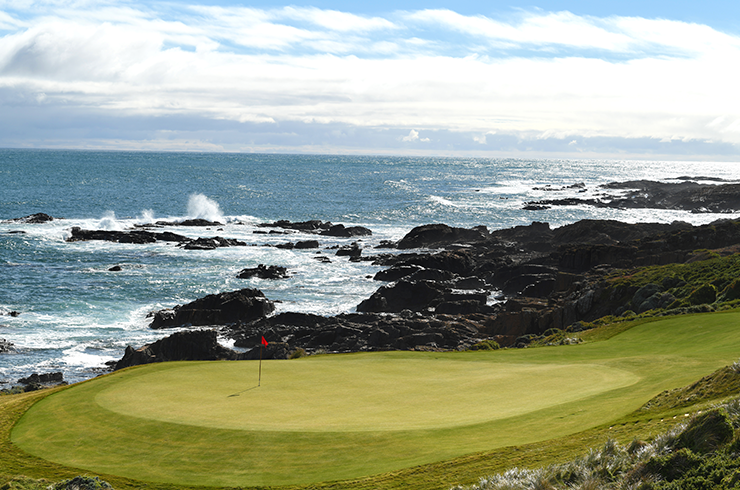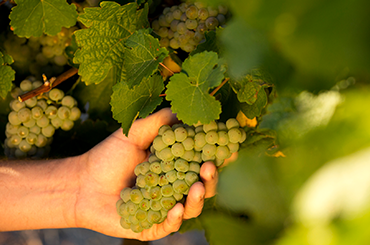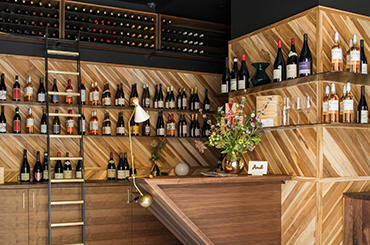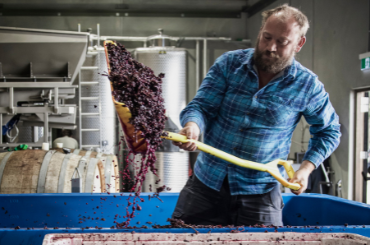When Callum Powell started Agricola in 2018, he was “dead broke” and couldn’t afford to buy grapes for the next year. Clare Burder launched Eminence Wines on a $5000 loan and a prayer.
Josh Cooper, whose folks own Cobaw Ridge, started his namesake label when, upon finishing winemaking school, he realised that there were no jobs to be had.
While there’s no doubt that the global wine industry is largely built on generational wealth, being a winemaker’s kid isn’t a guaranteed road to riches. Particularly in Australia, where the industry is smaller and far less lucrative than, say, inheriting an estate in Bordeaux. “I was saving to buy a house,” Clare says. Instead, she got a single fermentation egg. “And that took four years!”
Clare Burder | Eminence Wines
The daughter of grape growers, Clare is the first winemaker in her family. Eminence is based in Whitlands, a 12km-long, high-altitude ridge that runs above the western side of the King Valley in north-east Victoria. Her grandfather was one of the earliest white settlers in the area in the 1940s. Records are sparse, but local historians believe the Taungurung and Bpangerang peoples are the traditional custodians of the land.“It’s a really tough place to live and work,” Clare says of Whitlands. “There are no cellar doors, and public awareness of the wines is nil, basically.” It has a population of 33 people, no post office and no pub. Clare’s dad, David Burder, was an engineer by trade, but he was also into wine. In the late 1980s, he planted pinot noir and chardonnay as a side hustle. “It was a boom time,” Clare says, until the bottom fell out of the market in 2005. For years, they’d been selling fruit to Yalumba and Brown Brothers for sparkling wines; suddenly there were unsold grapes on the vines.
Making our own wine was “born of desperation, but we also wanted to see what our grapes were capable of,” she says. “I borrowed five grand from Dad and made a deal with him that I’d start a wine label. And Dad was so stoked. That was really his dream, I think.”
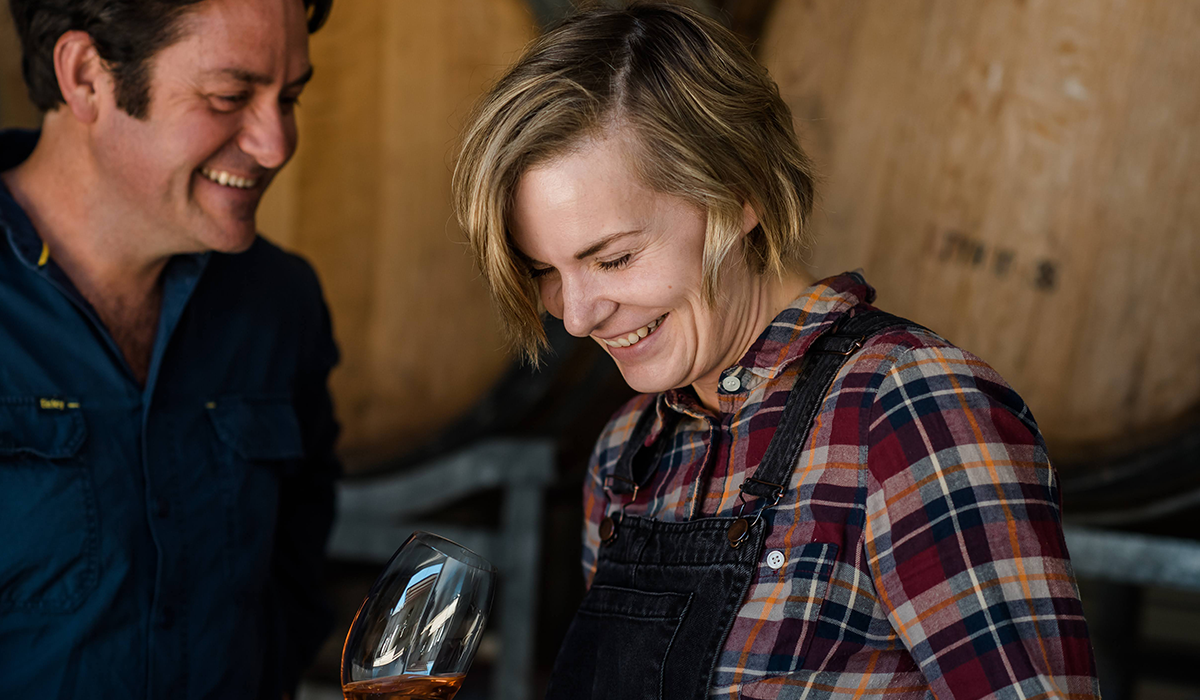
The first wines were made under contract in 2008. It took Clare a while to build up the courage to make them herself, though. “To be frank, I was really scared. I never thought I had a strong scientific brain. I was comfortable with them being contract-made and learning off people who have decades of experience.”
Then in 2010, Tony Jordan (who started Domaine Chandon Australia) came along and taught her how to make sparkling. “I still can’t believe he agreed to that,” she says. “All of that culminated in this little brand that just poked along. In 2018, I decided to make a proper go of it. I moved back to the farm, and we built a little winery.”
“Dad was very much like, ‘do what you’ve got to do’. From my perspective, it’s a real privilege to be trusted,” Clare says, but the economic realities of running a small business are ever-present. “We didn’t inherit any debt, but grapes are an enormous liability. If we were to lose our whole crop at once, we’d be out of business.”
Callum Powell | Agricola
“Family businesses are hard,” says Callum Powell, who set up Barossa-based winery Powell & Son with his dad, Dave Powell, back in 2014. Dave had just split with Torbreck, which he founded in 1994. Nineteen-year-old Callum had recently returned from a year in Hermitage.“He was at a loose end; I was really passionate about winemaking. It seemed like the right thing at the time,” Callum says. With Powell & Son turning out ripe, later-picked reds, Callum was able to squeeze in early vintages elsewhere, working for Tyrrell’s and Jasper Hill in Heathcote while studying oenology and viticulture at Adelaide Uni. That experience, coupled with his time in France, piqued his interest in minimal intervention winemaking. In 2018, Callum made three barrels of shiraz on the side.
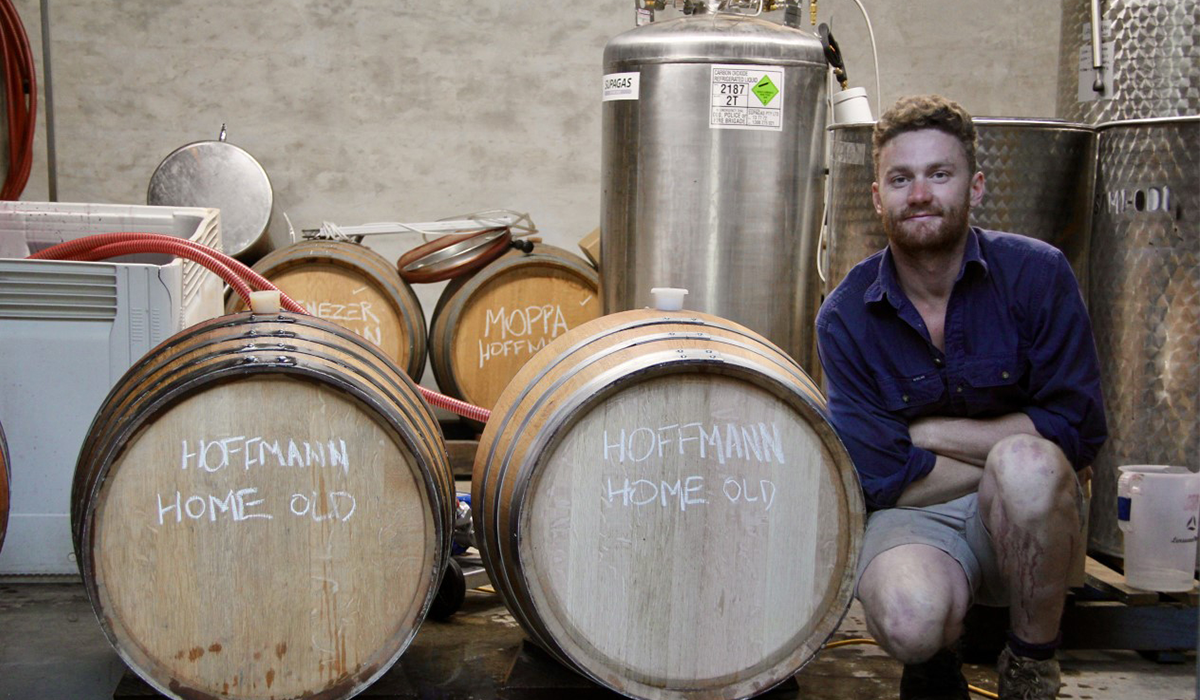
“It wasn’t meant to be anything commercial,” he says. “I just wanted to make something a little more transparent and see where it would lead.” As it happened, that was the last year the father and son duo would work together. The split was mutual, Callum says. “We had such different opinions on what we wanted to do.”
Callum didn’t take anything with him, except for his shiraz. A winemaker pal suggested he bottle and sell the wines, so he did. “Agricola started accidentally, to some extent,” he says of his small-batch indie label. “Everything I do here, you could fit into one fermenter at Powell & Son. That’s fine for me, it’s a good living,” he says.
These days, Dave Powell has a new label, Neldner Road Wines, and Callum has converted a 100-year-old dairy shed on his mum’s Flaxman Valley property into a rudimentary winery.
This year, he’ll make a new single-site shiraz from the Kalimna 1860 Block, which he’s pleased about – it took five years to convince the vineyard’s owners (who used to sell the fruit to St Hallett) that he was a worthy customer. Even as a second-generation winemaker, it seems you’ve still got to prove you’re not a kid anymore.
Belinda Thompson | Crawford River
“There was a rule in our house that if any of us wanted to work for the winery, we could only do so if we’d done something else,” says Belinda Thompson, second-generation winemaker at Crawford River in Victoria. Belinda did a Bachelor of Arts at Melbourne Uni and worked as a journalist before heading to New Zealand to study cool-climate winemaking. After that, it was back and forth between the family business and Rueda, Spain, for a series of vintages before Belinda officially took on the role of head winemaker at Crawford River in 2014.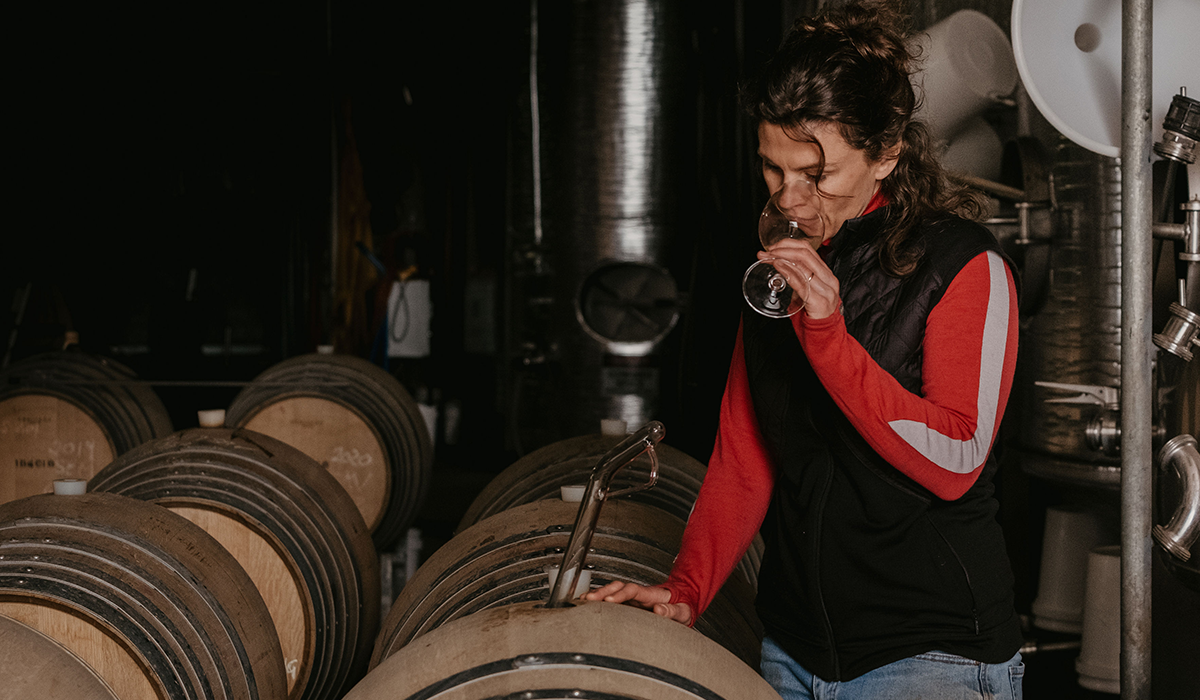
Her dad, John Thompson, is officially retired now, after establishing the winery in 1975. “I didn’t kick him out!” Belinda says the transition was both gradual and conflict-free, for the most part. “My first big change was in 2008. I wanted to stop using herbicide. That was our first argument,” she says.
“When you are used to a certain system, it can be hard to change. One year I just didn’t spray, and that was the end of that discussion,” Belinda says. Crawford River is now practicing organic and looking toward certification. “I’ve been here every vintage for 18 years. We have a trust and an understanding, which makes that easier.”
In addition to being both winemaker and viticulturist, Belinda also makes skinsy, natural, barrel-fermented wines under her own label, Apis. There’s a pinot grigio in market at the moment, and a 2022 variation coming out shortly.
“It’s very much an ‘opportunist’ label,” she says. Her first release back in 2008 was made with old-vine chardonnay off the Crawford River vineyard, but now it comes down to who calls with fruit to sell, and whether she wants to buy it.
“There’s not a massive business plan behind it – it’s just something I do for fun that doesn’t sit behind the Crawford River name. It gives me a chance to do something on my own.”
Josh Cooper | Joshua Cooper Wines
Josh Cooper makes his ethereal, natural wines at Cobaw Ridge, the winery his parents Alan and Nelly Cooper started in 1985, though it doesn’t come for free.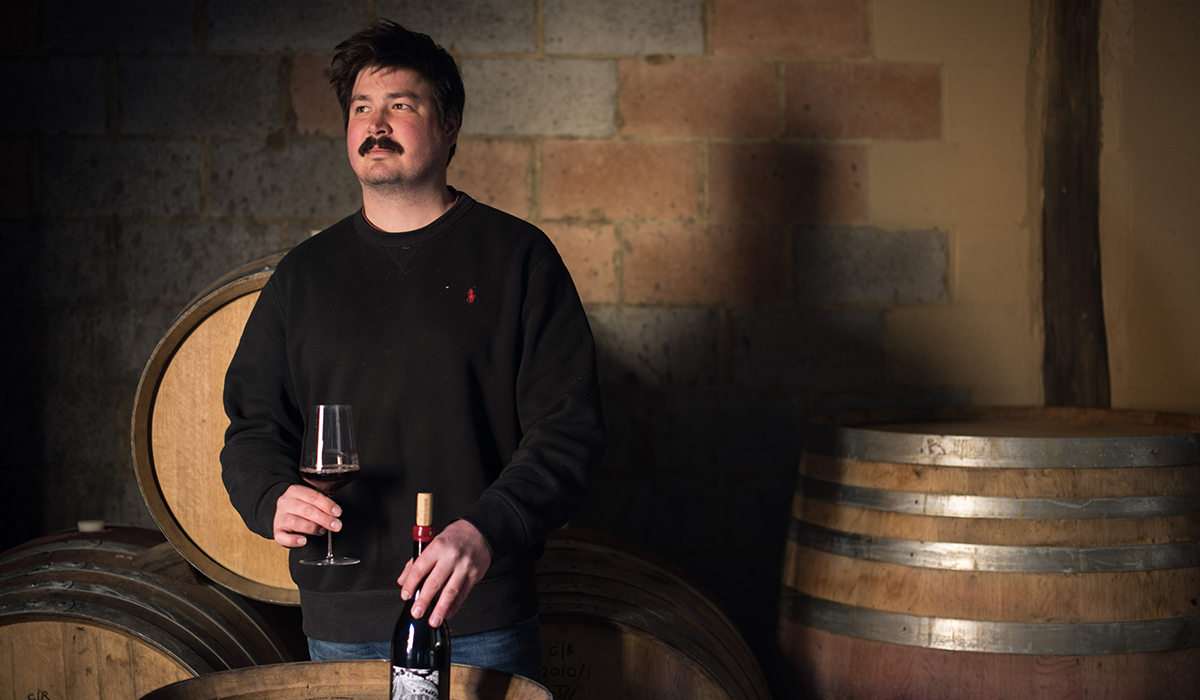
The 34-year-old, who grew up on the Macedon Ranges property, helps his parents through vintage, and he works “casually” in their vineyard in exchange for use of their winemaking facilities.
The perks stop there, though. He started his label in 2012 (with money made working in other people’s wineries) because there wasn’t much room for him at home, and the only jobs going were with big corporates, which isn’t Josh's style.
“At this stage, the wines I am making are being led by vineyards set up in the 1970s, and I have known those vineyards my whole life,” he says. That means cabernet sauvignon, a varietal his folks don’t work with, from one of Balgownie’s earlier blocks, and this vintage there’ll be a single vineyard wine from Redbank’s Sally’s Hill block, too.
There was never any pressure whatsoever to go into wine, Josh says. “But growing up around it...it does become appealing. I love that it’s different week to week, or month to month, season to season.” There are no immediate plans for Josh to take over the family business. “They let me do my own thing...they’re interested in it, but it’s all fairly separate,” he says. “There’s certainly no succession plan.”
This article appears in issue #68 of Halliday magazine. Become a member to receive the print publication as well as digital access.
